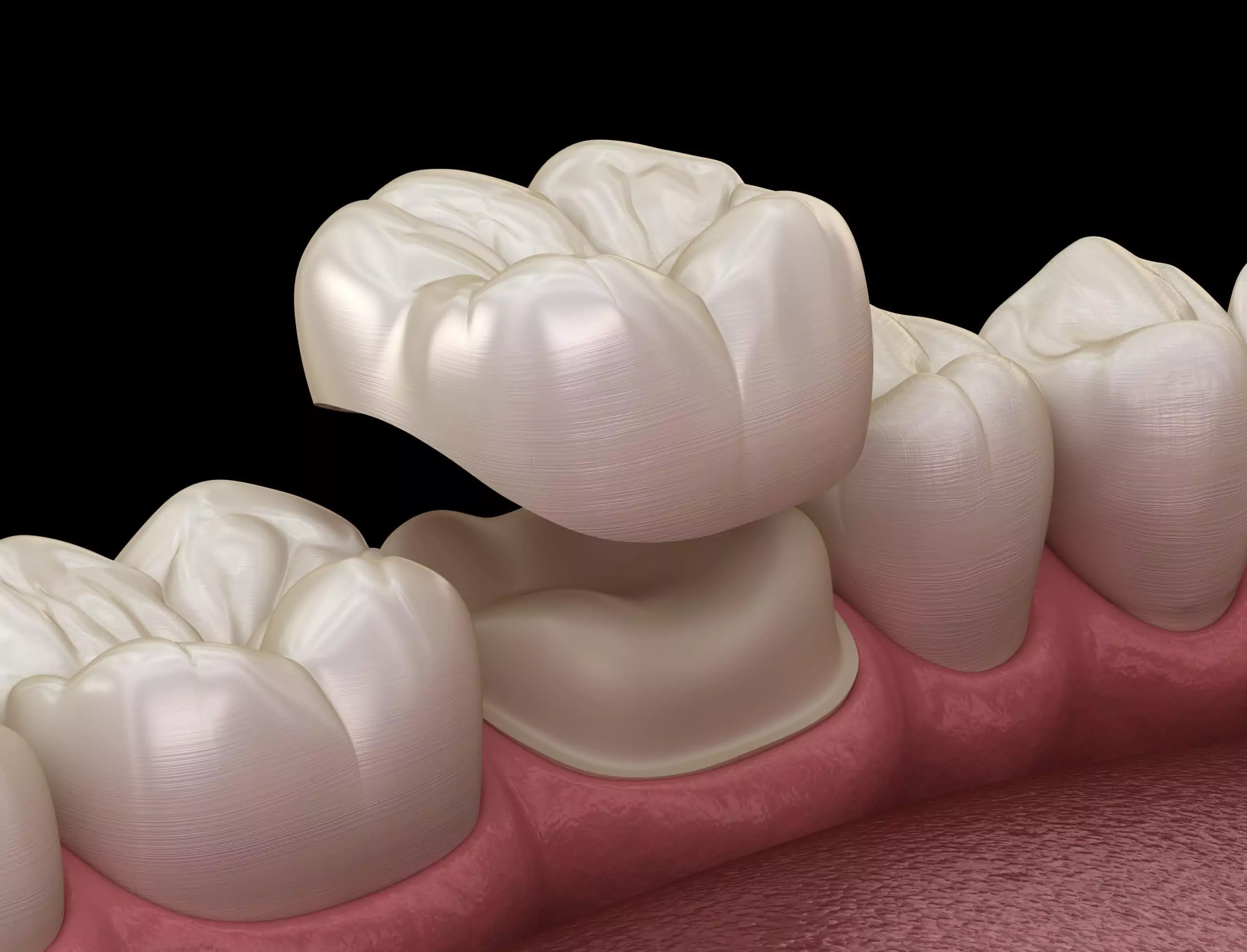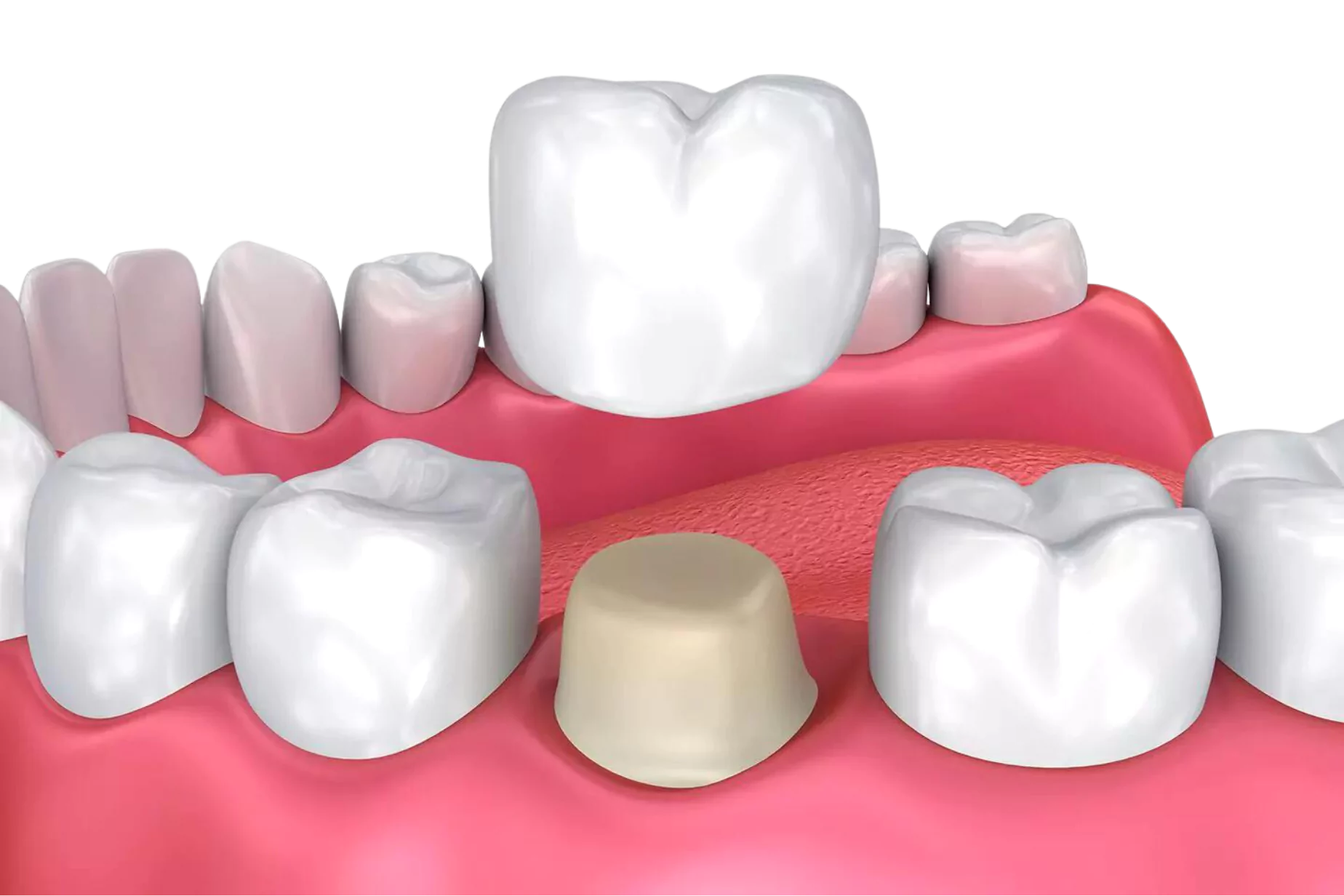
If you have a damaged tooth, dental crowns can restore your smile and improve your bite. Dental crowns are safe and act as protective caps for damaged teeth. They are designed to resemble natural teeth in terms of appearance, function, and feel.
The primary purpose of a crown is to safeguard a compromised or damaged tooth by covering it with a customised cap. Dental crowns are a method of tooth restoration that returns a damaged tooth to its original size, shape, and functionality. They also strengthen the tooth and enhance its appearance.
Dental crowns restore damaged or compromised teeth, improving their form, function, and aesthetics.
It is important to consult with your dentist to determine the most suitable type of dental crown for your specific needs and preferences.
Unleash the power of your smile and embark on a life-changing journey today! Embrace a transformational experience that will redefine your confidence and elevate your smile to new heights. Take the first step towards a radiant future and unlock the extraordinary potential within you. Let your smile become the symbol of your transformation and embrace the incredible possibilities that Await.

At HATOMO “Dental Voyage”, we are committed to delivering exceptional dental care that is both reliable and cost-effective. Our aim is to make high-quality dental treatments accessible to all our patients. The cost of dental crowns in India can vary based on several factors such as the specific dental clinic, location, materials used, and the complexity of the case. On average, the price range for dental crowns in India is approximately $200 to $250. It’s important to note that this estimate is a general range, and the final cost may vary depending on individual circumstances and treatment requirements.
Rest assured that our pricing includes all the necessary components of the dental crown procedure, including dental impressions, crown design, and temporary crowns. Our team will provide you with a comprehensive treatment plan and a breakdown of the associated costs during your consultation, ensuring transparency and clarity throughout the process. We strive to deliver exceptional value for our patients by combining affordable prices with top-notch dental care, so you can achieve a healthy and beautiful smile without compromising on quality.
A dental crown is usually recommended in situations where a tooth’s structure has been significantly compromised. Here are some common scenarios that may require a dental crown:
It’s important to consult with your dentist who will evaluate your specific situation and determine if a dental crown is necessary for optimal oral health and aesthetics.
The average longevity of dental crowns is typically around 10 to 15 years. However, with proper maintenance and oral care, certain types of crowns like zirconia and full metal crowns have the potential to last even longer. It’s important to note that the lifespan of a dental crown can vary depending on individual factors and oral hygiene practices. Regular dental check-ups and good oral hygiene habits can help extend the lifespan of dental crowns.
The dental crowning process is designed to be as comfortable as possible for patients. Local anaesthesia is used during the procedure to ensure that you don’t feel any pain. After the procedure, it’s normal to experience some sensitivity or mild soreness in the treated tooth and gums, but these symptoms are usually temporary and should subside on their own. If you experience excessive or prolonged pain after getting your crown fitted, it’s advisable to contact your dentist to schedule an appointment for further evaluation and appropriate management.
The entire dental crown procedure generally involves two visits, usually spaced over a period of 6 to 8 days. In some cases, additional visits may be necessary to address any complications or make adjustments to the dental crown.
Increased tooth sensitivity: It is common to experience sensitivity or discomfort in the crowned tooth, especially when consuming hot or cold food and drinks. Excessive sensitivity or pain may indicate an improper fit of the crown.
Dental crowns, veneers, implant crowns, and dentures cannot be whitened using traditional whitening treatments. These restorations are made from materials like porcelain, metals, or zirconia, which are not responsive to whitening solutions. If you are interested in improving the colour of your dental restorations, it is best to consult with your dentist who can discuss alternative options such as replacing the existing restorations or exploring other cosmetic procedures that can help achieve the desired result.
Stay up-to-date with our latest updates!
We will never send any spam emails.
